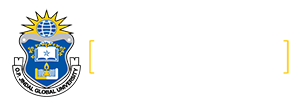M.Com vs. MBA: Which Degree is Best for a Career in International Finance?
December 19, 2024 2025-01-08 11:56M.Com vs. MBA: Which Degree is Best for a Career in International Finance?

M.Com vs. MBA: Which Degree is Best for a Career in International Finance?
Choosing the right degree can significantly impact your career trajectory, especially when entering a highly specialized and competitive field like international finance. Two of the most prominent postgraduate options available are the Master of Commerce (M. Com) and the Master of Business Administration (MBA). While both degrees are valuable, they cater to different professional needs and aspirations. So, which one is better suited for a career in international finance? Let’s delve into the key differences, benefits, and career prospects each degree offers to help you make the best choice.
Understanding the Core Differences Between M. Com and MBA
When comparing an M. Com and an MBA, the primary distinction lies in their approach and focus.
- M.Com (Master of Commerce):
An M. Com provides in-depth, specialized knowledge in finance, accounting, and economics. The program often includes topics such as taxation, auditing, and cross-border trade, offering a robust foundation in financial principles. In the context of international finance, an M. Com hones technical expertise, enabling students to navigate global financial markets, manage foreign exchange, and understand international trade regulations. - MBA (Master of Business Administration):
An MBA, on the other hand, takes a broader approach to business education. It emphasizes strategic thinking, leadership, and management skills while covering topics like marketing, operations, and entrepreneurship. For international finance aspirants, an MBA with a specialization in finance or international business provides insights into global business strategies, market trends, and multinational operations, equipping graduates for leadership roles in a globalized economy.
Ultimately, the choice depends on whether you prefer to focus deeply on financial technicalities (M. Com) or gain a holistic view of business with leadership training (MBA).
How Each Degree Prepares You for International Finance Careers?
Both an M. Com and an MBA can pave the way for a successful career in international finance, but they differ in the skills they prioritize and the opportunities they unlock.
M.Com: A Deep Dive into Financial Expertise
An M. Com program is ideal for students who want to master the technical aspects of finance. Courses in areas like international financial management, global investment strategies, and foreign exchange markets equip graduates to excel in roles requiring specialized financial knowledge. With a focus on analytical rigor, the degree develops skills in:
- Managing international trade transactions
- Understanding global tax systems and regulations
- Analysing global financial trends
- Risk management in international investments
M.Com graduates often pursue roles such as international financial analysts, trade specialists, or auditors for multinational corporations and government agencies.
MBA: Leadership in a Globalized Business World
An MBA program prepares students to lead and strategize in the complex world of international business. Its multidisciplinary approach helps students grasp the interplay between finance, management, and strategy. Key skills developed in an MBA program include:
- Strategic thinking and decision-making
- Global market analysis
- Leadership and team management
- Business development across borders
With this skill set, MBA graduates often secure leadership roles such as international finance managers, business development directors, or global investment executives.
Specialization Options in International Finance
Both degrees offer opportunities to tailor the curriculum to your interests in international finance, but the paths they take differ:
- M.Com Specializations:
An M. Com often allows students to focus on advanced financial concepts with courses like international trade finance, cross-border taxation, and global investment management. These specializations build technical expertise for niche roles in the finance sector. - MBA Specializations:
An MBA in finance or international business offers broader electives, such as global business strategies, multinational financial operations, and emerging markets. The focus is on equipping students to make high-level strategic decisions and manage teams in global settings.
For those drawn to a specific area of international finance, such as foreign exchange markets, M. Com might be a better fit. However, if you envision a leadership role that requires managing teams and navigating complex business ecosystems, an MBA may serve you better.
 Career Prospects for International Finance Graduates
Career Prospects for International Finance Graduates
M.Com Career Pathways
Graduates with an M. Com degree can excel in roles requiring a deep understanding of finance and analytics. Common career options include:
- International Financial Analyst: Analyse global market trends and provide insights to optimize cross-border investments.
- Trade Specialist: Manage international trade transactions and navigate foreign exchange challenges.
- Risk Management Consultant: Develop strategies to mitigate financial risks in global markets.
- Regulatory Analyst: Ensure compliance with global financial regulations for multinational organizations.
MBA Career Opportunities
An MBA graduate can pursue leadership roles that combine financial acumen with strategic oversight. Common positions include:
- Global Finance Manager: Oversee financial operations for multinational corporations.
- Business Development Director: Drive growth initiatives across global markets.
- Chief Financial Officer (CFO): Lead the financial strategy and operations of a global company.
- International Business Strategist: Develop and execute strategies to expand businesses into new international markets.
The Benefits of Each Degree for International Finance Aspirants
Advantages of an M. Com Degree:
- Specialized Knowledge: Provides in-depth understanding of financial concepts and international trade.
- Cost-Effective: Generally, more affordable than an MBA.
- Academic Pathway: Serves as a stepping stone for further academic pursuits, such as a Ph.D. in finance.
Advantages of an MBA Degree:
- Holistic Business Education: Combines finance expertise with strategic thinking and leadership skills.
- Networking Opportunities: Offers access to a diverse network of peers, faculty, and industry professionals.
- Career Flexibility: Opens doors to leadership roles across industries, not just finance.
How to Decide Between an M. Com and an MBA?
The decision ultimately depends on your career goals, preferred learning style, and long-term aspirations. Here are some factors to consider:
- Choose an M. Com if:
- You want to specialize deeply in financial concepts and practices.
- You prefer a technical, research-oriented education.
- Your career goal involves roles like financial analysis, risk management, or regulatory compliance.
- Choose an MBA if:
- You want to develop leadership and management skills.
- You seek a broader understanding of global business.
- Your career goal involves strategic decision-making and high-level management roles.
Conclusion
Both an M. Com and an MBA can lead to fulfilling careers in international finance, but they cater to different professional aspirations. An M. Com offers technical expertise and specialization in finance, making it ideal for those seeking analytical or research-based roles.
Meanwhile, an MBA provides a broader business perspective with a focus on leadership and strategy, making it perfect for those aiming for managerial positions in a globalized economy.
Carefully assess your career goals, interests, and aspirations to determine which path aligns best with your vision for the future.
Whether you choose the technical rigor of an M. Com or the strategic depth of an MBA, both degrees can position you for success in the ever-evolving field of international finance.
Related Posts
Short-Term Course Vs Full-Time Degree
Search
Categories
Popular Tags
Popular tags


Comment (1)
Ava Bennett
I love how you’ve explained the topic so clearly. It’s obvious that you’ve put a lot of effort into making the material easy to understand while still providing a wealth of information. I look forward to reading more from you!